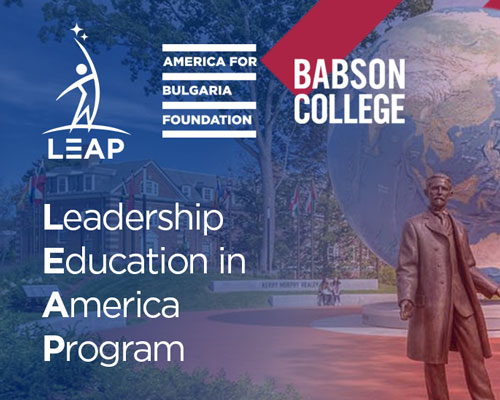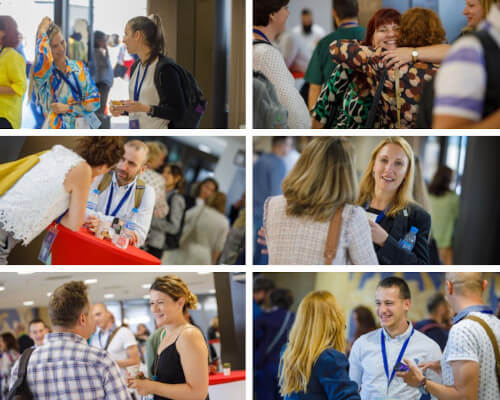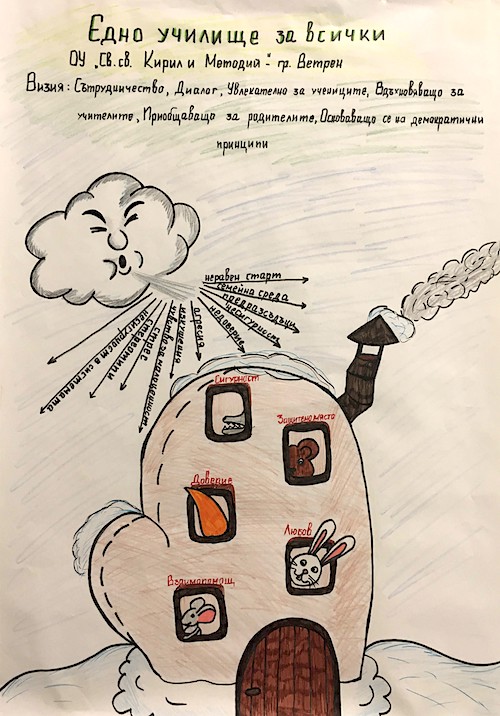
What does it mean for a school to be inclusive?
For Lyuben Karavelov School in the northeast town of Dobrich, becoming inclusive was including educators in decision-making and school management. Teachers and parents at Hadji Gencho School in Teteven, in the Bulgarian northwest, ended up making “recipes for a calm day” to ensure every child felt safe and happy at school.
At Bacho Kiro School in Pavlikeni, in northern Bulgaria, the key was involving parents in the education process. Team members from Bacho Kiro School, which has students from 12 neighboring towns and villages, started holding parent-teacher meetings in the families’ own towns when they realized many of them couldn’t afford the cost of travel to Pavlikeni.
Brothers Miladinov School, Sofia’s 97th, began offering additional support for teachers and individual meetings with parents. Its ratings improved and its student body increased by a fifth in three years.
No one school is exactly like the next, yet the inclusive education model developed by the Association for Shared Learning ELA (formerly Centre for Inclusive Education), an education-focused NGO based in Sofia, empowers every school to become a safe, welcoming environment for all: learners, educators, parents. The model, One School for All, was created with the support of the America for Bulgaria Foundation and has been tested in 15 schools across Bulgaria. A total of 376 teachers have participated in the One School for All program since 2014, reaching thousands of students and their families.
The ELA model also achieved international recognition. In 2019, it won EU funding through the Erasmus+ program and is being scaled to three countries, Romania, Greece, and Portugal. Moreover, through Erasmus+, ELA’s e-learning Intro to Inclusive Education course will be available for free to users throughout the European Union.
The One School for All model also received a Zero Project award for innovative practice in the field of inclusive education. In 2020, Zero Project, an initiative of the Austria-based Essl Foundation, recognized 86 innovative practices and policies worldwide supporting social entrepreneurship and people with disabilities; the top ten will receive support and training to enhance their capacity and promote their activities across the globe. The Bulgarian model for inclusive schools is one of them.
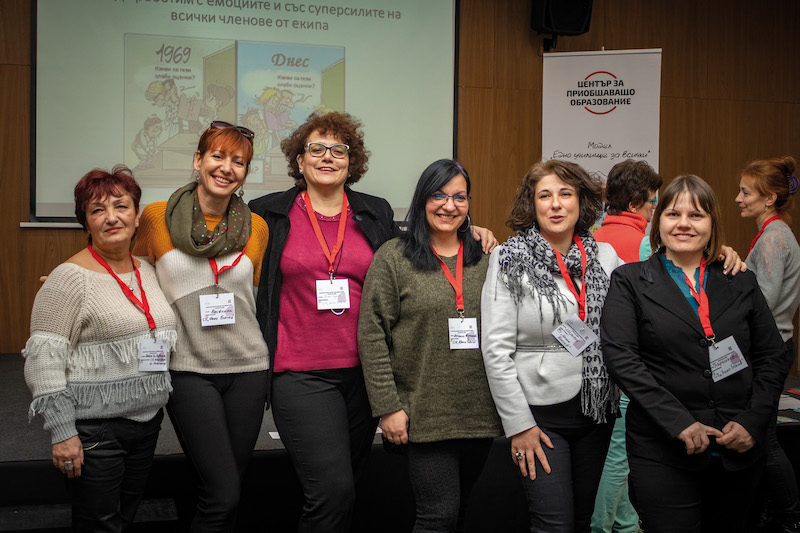
“A common misconception is that inclusive education is only about integrating learners with difficulties. A school becomes One School for All through a whole-school approach that considers the needs of the entire school community,” says Liliya Arakchieva, who manages the One School for All project. In a truly inclusive school, children feel supported to develop their abilities and to overcome hardships, teachers feel encouraged and confident that they are able to cope with dynamic challenges, while parents are able to assume their responsibility and role in partnership with schools.
“The reason the One School for All model works so well is that it is both universal and easily adapted to the needs of individual schools,” Arakchieva says. It offers a systematic approach to building inclusive school environments, dividing the work into four areas: school leadership, classroom practices, partnership with parents, and child safety. Importantly, schools can choose which areas to focus on and adapt the available tools to get there.
“Since we began working on the model, my colleagues and I have started to communicate with each other better,” says Svetla Ivanova, principal of Lyuben Karavelov School. “We managed to create a calmer environment for children. They are more confident and smile more. The benefits for parents are that they have become involved in our initiatives and actively take part in school life, even initiating activities themselves.” The school team worked in all four model areas and became a test case for how the model can be scaled to other schools.
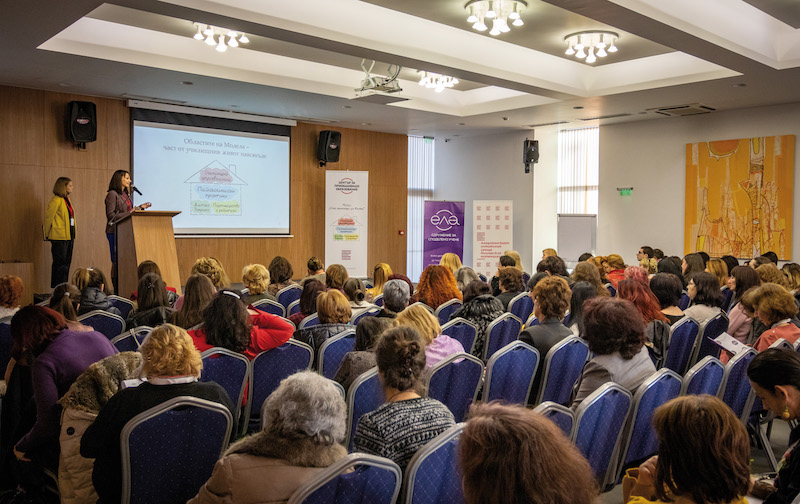
“One School for All helps schools themselves to create an inclusive environment, so parents are satisfied, students are happy there, and teachers are successful,” says Emilia Manolova, principal of Brothers Miladinov School, Sofia’s 97th.
For Anton Strashimirov School in the northern village of Bohot, inclusion was acknowledging that not all learners speak Bulgarian as a first language and offering extra help and encouragement for non-Bulgarian speakers. “We wanted to change our school so it would become a place children wanted to go to,” says Diana Vardzhieva, who teaches German and math there. The school also engaged family members to help with homework and lesson preparation and encourage students not to skip classes.
The results were immediate: school attendance increased, and children started feeling better about being at school. “Today’s happy children are tomorrow’s successful citizens. This is something we really believe in,” Vardzhieva says.
Your school can also be transformed with the One School for All model. Find out how at Priobshti.se.
